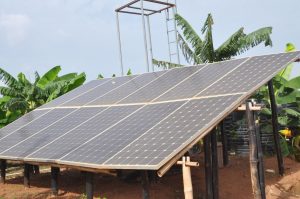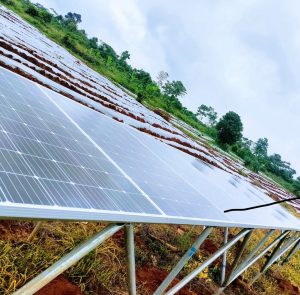A Call for a Solar Power Transition for Sustainable Farming: The Impact of Fuel Subsidy Removal on Nigerian Farmers
A Call for a Solar Power Transition for Sustainable Farming: The Impact of Fuel Subsidy Removal on Nigerian Farmers
I want to discuss a significant problem impacting Nigerian farmers and offer a creative fix for efficient farming methods. The issue at hand is how the elimination of fuel subsidies would affect these industrious people and the pressing need to switch to solar power. Let’s delve into the details:
- Increased Operational Costs: Nigerian farmers who heavily rely on diesel and petrol to operate their agricultural machines have been severely impacted by the price of these fuels since fuel subsidies were eliminated. Increased operational costs hinder productivity, lower profit margins, and jeopardize the long-term viability of farming operations.
- Environmental Consequences: Excessive fossil fuel use in agriculture not only increases greenhouse gas emissions but also damages the ecosystem by contaminating air and water. To reduce these negative consequences and ensure sustainable farming methods for future generations, Nigerian farmers must adopt renewable energy sources like solar electricity.
- Inadequate Electricity Access: The majority of farming activities are conducted in rural locations, where there is frequently poor or inconsistent access to the national power grid. Nigerian farmers can become self-sufficient in fulfilling their energy demands, independent of the grid, by switching to solar power and utilizing the region’s abundant sunlight.
- Advantages of solar energy for agriculture
- Cost-effectiveness: Solar power systems are getting cheaper, allowing farmers to save money on gasoline in the long run.
- Reliability: Solar energy is a dependable source of power, ensuring daylong operations.
- Versatility: Solar energy can be used for irrigation, lighting, and mechanical powering in a variety of farming operations.
- Sustainability: Using solar energy lessens reliance on fossil fuels, lessens negative effects on the environment, and promotes a more environmentally friendly future.
In conclusion, Nigerian farmers face major difficulties as a result of the elimination of fuel subsidies, mandating a switch to solar energy for sustainable farming. Farmers may resist rising operational expenses, lessen environmental harm, and gain access to dependable and affordable electricity by embracing solar energy. Let’s work together to encourage and promote this change so that Nigerian agriculture has a bright future.




